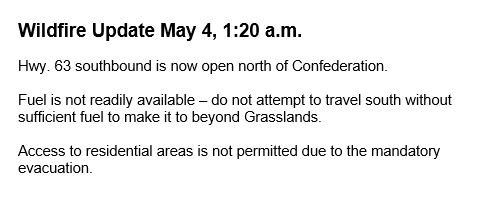Fort
McMurray's 80,000 Climate Refugees
Paul
Beckwith on Alberta’s fires
Fort
McMurray was incinerated in a wildfire creating 80,000 climate
refugees overnight. As tragic as this fire was, it is just one more
city being destroyed in our climate change casino. Every city on our
planet is vulnerable. Governments must do the right thing and declare
a global climate change emergency.
No
mention that Fort McMurray is in the tar sands area of Alberta from
CNN or anyone else – even though you can see it from Space
Fort
McMurray fire: Entire city forced to flee as inferno rages
CNN,
4
May, 2016
The
sky in northern Alberta's Fort McMurray resembled a wall of fire and
smoke Wednesday as a mammoth inferno swallowed parts of the Canadian
city.
Authorities
ordered the evacuation of about 88,000 people, including the entire
city of Fort McMurray, the Regional Municipality of Wood Buffalo
said.
The
blaze has already destroyed 80% of Fort McMurray's Beacon Hill
community, RM Wood Buffalo said.
In
all, some 1,600 structures have been destroyed by the fire, Alberta
Premier Rachel Notley said. However, there have been no reports of
deaths or injuries, officials said.
High
winds, warm weather and dry conditions were expected to create
"explosive conditions" for fire growth and make it
difficult for firefighters to keep up, Alberta forestry manager
Bernie Schmitte said.
The
fire is "challenging all of us," he said.
Paul
Spring said his neighborhood went down in flames.
"The
whole subdivision is gone," the longtime pilot and firefighter
said. "Things are pretty horrible right now. We've been out
flying and surveying the damage."
Spring
is the president of Phoenix Heli-Flight. Despite his loss, he hasn't
stopped working.
"All
our efforts to control and contain the fire were challenged by this
extreme fire behavior," Schmitte said. "Efforts were also
hampered by smoke conditions. Basically fire behavior was beyond all
control efforts."
The
good news: "Conditions are set to improve over the next couple
of days," CNN meteorologist Judson Jones said.
Temperatures
that soared to 32.6 Celsius (90.6 degrees Fahrenheit) on Tuesday will
drop to the low 20s C (60s F) on Thursday and Friday -- giving
firefighters a hand in combating the blaze, Jones said.
The
main challenge ahead: fierce winds gusting in different direction.
"If
it's constantly changing direction in different ways, it's hard to
control a fire," Jones said.
The
wildfire, which began Sunday, had already torched 7,400 acres by
Tuesday, CNN partner CBC News said. The cause of the blaze remains
unclear.
Driving
through a blanket of smoke
Jordan
Stuffco filmed the exodus out of Fort McMurray. Drivers plowed
through thick clouds of black smoke as flames shot up nearby.
"My
harrowing drive evacuating #ymm praying for my friends," Stuffco
tweeted.
YMM
is the airport code for Fort McMurray.
The
only hospital in the city, Northern Lights Regional Health Centre,
evacuated all 105 patients, the Alberta government said.
"I
am out. I am safe," tweeted one resident. "I've never been
more scared in my life. Praying for my home right now."
Spring,
the helicopter pilot who lost his home, said his company has been
scrambling to fly patients from the evacuated hospital to other
medical facilities.
Mark
Jones told CNN his neighborhood went from a voluntary evacuation to a
mandatory one in an our.
"It
took me about three hours to get out of town," he said. "Once
the evacuation started, everything was in gridlock. Traffic was going
in one direction. There were people going in ditches and everywhere."
Prime
Minister Justin Trudeau said the country stands ready to help.
"Canada's
a country where we look out for our neighbors," he said. "We
are there for each other in difficult times."
He
said those wanting to help can donate to the Canadian Red Cross.



 Michel Gosselin
Michel Gosselin












 RMWB
RMWB









 Terry Reith
Terry Reith









No comments:
Post a Comment
Note: only a member of this blog may post a comment.